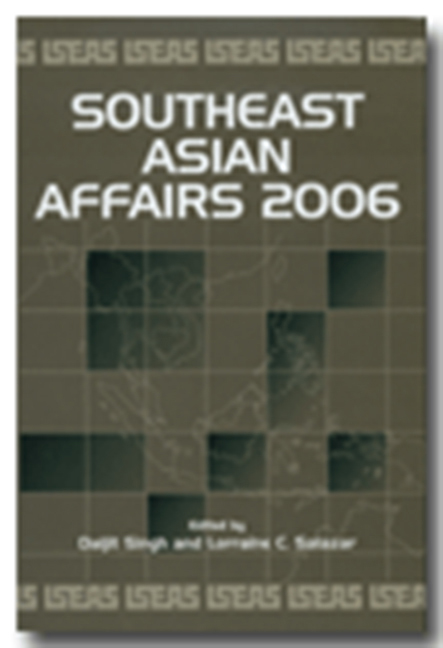Book contents
Myanmar's Human and Economic Crisis and Its Regional Implications
from Myanmar
Published online by Cambridge University Press: 21 October 2015
Summary
“Quite so!”, said one of the retired professors from behind a cloud of cheroot smoke. “My Western friends always ask me, ‘Why are the Burmese so cynical?’ I reply that there isn't any single reason to be cynical. But in these prevailing conditions there is absolutely no reason for optimism.”
(Emma Larkin, Secret Histories: Finding George Orwell in a Burmese Teashop [London: John Murray, 2004], p. 30)
Myanmar is a leading example of what represents, at least by some definitions, a failed state: tyrannically governed by a military junta whose sullen leaders are seldom seen in public, with a downtrodden, impoverished, and dispirited citizenry — most of whom struggle to survive, at best with the most basic standard of living. Except for the swollen hierarchy of the State Peace and Development Council (SPDC), upper elements of the armed forces (SitTat or Tatmadaw) and crony businessmen (including an increasingly self-evident resident Chinese population), the people of Myanmar experience few of the comforts and advances of the modern world. The unloved governing military junta, in absolute power under one name or another since 1962, prevails only because of the authority of the gun, and obliging neighbours on all sides eager to partake of Myanmar's still abundant natural resources at fire-sale prices.
But Myanmar's internal situation has deep geopolitical ramifications. Emanating from this wounded nation are huge and problematic challenges for the region. There is evidence to suggest that despite periodic state efforts to eliminate the production of opium poppies, Myanmar remains one of the world's largest producers of heroin and amphetamines — most of which is consigned for international delivery through India, China, and Thailand. This, combined with what amounts to an uncontrolled HIV/AIDS epidemic, arguably makes Myanmar a threat to regional security. Perhaps even more destabilizing is the steady wave of despairing people aiming to escape, particularly through the border region with Thailand, a phenomenon which will only increase as Myanmar's economic and political instability continues unabated.
- Type
- Chapter
- Information
- Southeast Asian Affairs 2006 , pp. 208 - 224Publisher: ISEAS–Yusof Ishak InstitutePrint publication year: 2006

